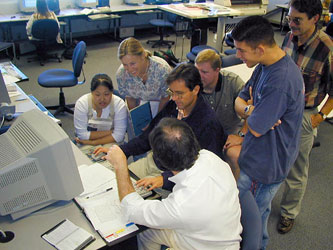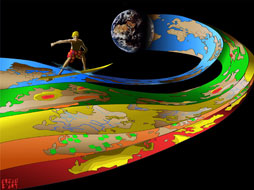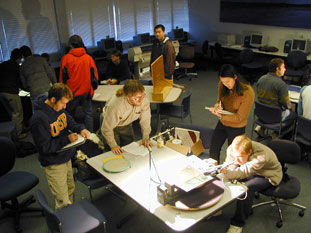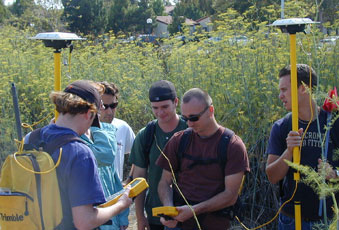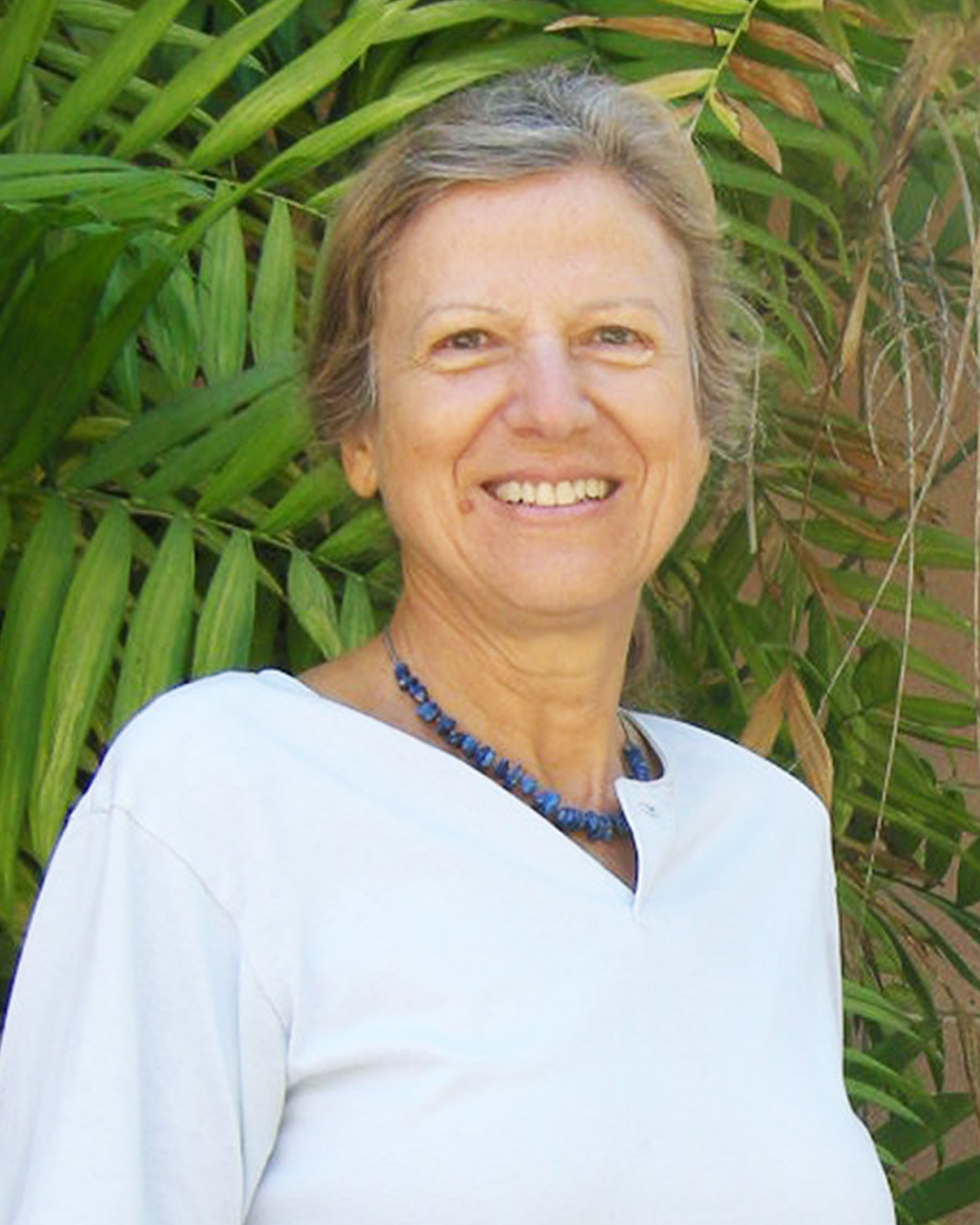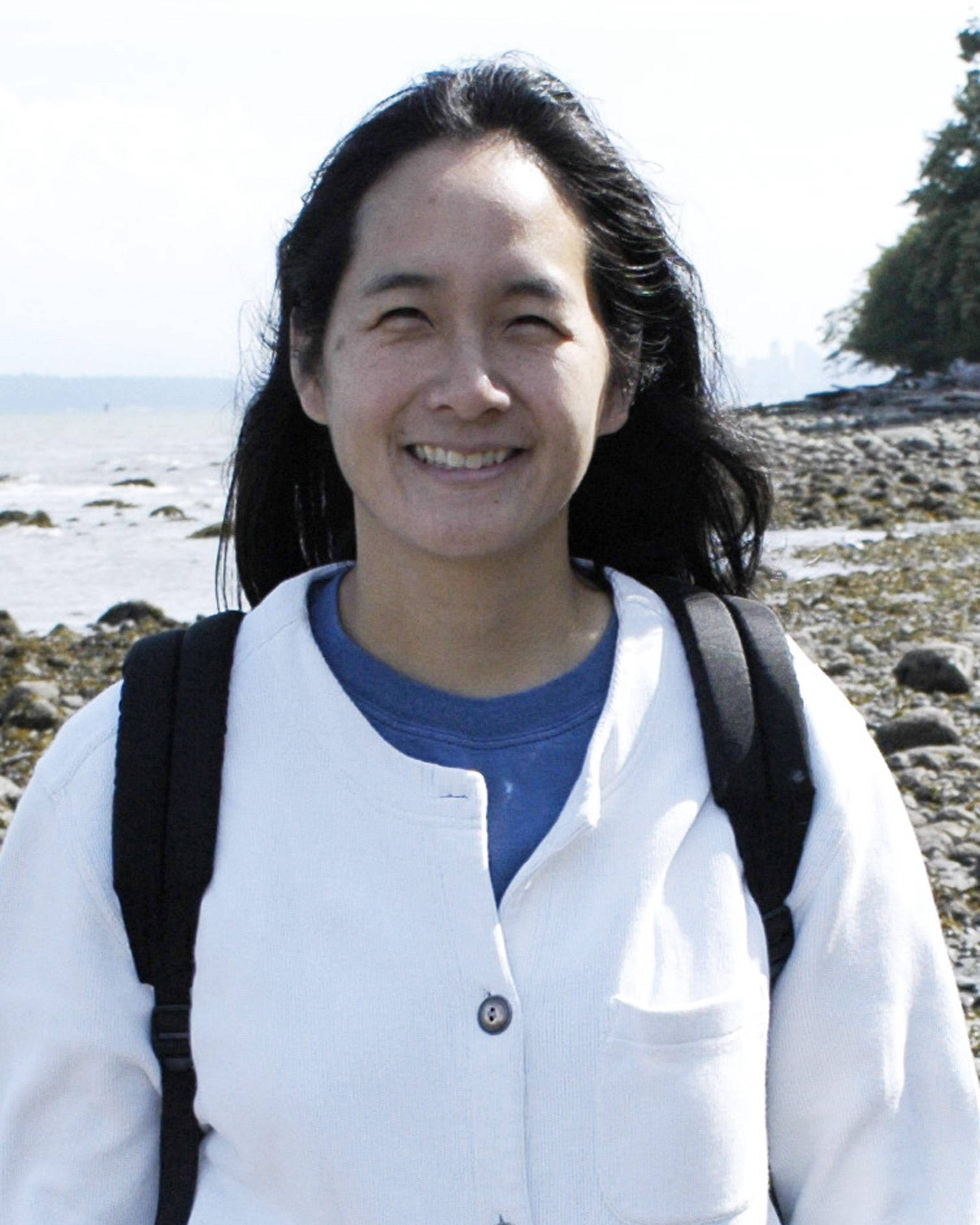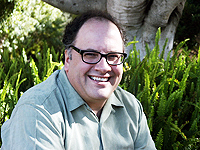“When I declared Geography as a major several years ago, not only did I feel I had found my academic calling, but that I had discovered part of myself as well. I’ve loved working in a field where the main counterparts are the understanding of Earth’s human and environmental processes, the use of cutting-edge technology, and the endless possibilities for creative implementation of these tools in worldwide issues.” (Laura Harrison)
Our perspective is an integrative one, driven by globally important research questions. Geography’s highly trained and diverse faculty bring together aspects of International Development Studies, Urban and Regional Planning, Climatology, Terrestrial Sciences, Marine Sciences, Statistics and Operations Research, and Environmental Psychology.
Active research areas include: global climate change; development studies; geographical analysis, GIS, and remote sensing; global climate change; natural hazards and risk; regional geography; spatial optimization, spatial perception and cognition; sustainability, resources, and conservation; transportation and planning; and urban studies. If this broad perspective appeals to you, then you’re a candidate for a Bachelor of Arts or a Bachelor of Science in GEOGRAPHY!
Geography is the most interdisciplinary department on the UCSB campus. It is also the most integrated discipline on campus, insofar as the material taught in our classes about environmental processes can be found in other disciplines but are only put together as a whole story in Geography. Above all, Geography is “spatial”– virtually everything has a spatial component, from the distribution of subatomic particles to the choices we make when we buy groceries. Therefore, as a Geographer, you can choose to study an enormous range of subjects. Geography is also an extremely hands-on discipline with a strong emphasis on using computer-based tools and participating in field studies. Knowing where things are, why they got there, and how they work is critical to understanding our world today and how it is changing—this is Geography!
The UCSB Department of Geography is represented by three cross-cutting themes: Earth System Science: the physical and biological processes of the environment; Human-Environment Relations: the way humans perceive, interact with, and modify the environment; Modeling, Measurement, and Computation: techniques for the collection, analysis, and interpretation of geospatial data using tools such as GIS, remote sensing, and spatial statistics
We are internationally recognized as one of the largest and highest ranked Departments of Geography, and our faculty routinely win the most prestigious awards in their fields. Some of our most popular classes include Geography of Surfing, Geography of the U.S., Oil and Water, and GIS. For a more complete list of our classes and the faculty who teach them, see the UCSB Geography web site.
Geography majors are among the most marketable of all majors, according to placement counselors. As the Association of American Geographers Career Guide points out, Geography’s theories and methods provide analytical techniques applicable to a wide range of questions asked over a broad spectrum of occupations. For students planning to end their formal education with the bachelor’s degree, a major in Geography provides marketable skills and the broad perspectives on environment and society that enable graduates to move beyond entry-level positions. Geography also provides a sound foundation for students who plan to enter graduate work in a variety of fields, from geography and the physical sciences to business, land use planning, law, and medicine. Geography graduates are highly sought after in many work environments, from local to national government, the US Geological Survey, the US Forest Service, and NASA to industry–where they apply their skills in GIS, remote sensing, web design, and cartography–and Education, such as the National Geographic. Geography skills apply to many problems involved in public health and safety, marketing, transportation, urban and regional planning, map design, environmental assessment, conservation, sustainability, and much, much more.
Got a question? If so, stop by and meet your Faculty Undergraduate Advisors! Your Faculty Undergraduate Advisor is determined by the first initial of your last name:
A – F = Professor Helen Couclelis. By appointment: F 8:00-10:00 am; email = ugrad_advisorAF@geog.ucsb.edu. Open office hours: R 9:30 am-12:30 pm; EH 5809.
G – L = Professor Jennifer King. By appointment: R 1:30-3:30 pm; email = ugrad_advisorGL@geog.ucsb.edu. Open office hours: T 12:30-3:30 pm; EH 5718.
M – R = Professor Dan Montello. By appointment: M 3:00-5:00 pm; email = ugrad_advisorMR@geog.ucsb.edu. Open office hours: F 1:30-4:30 pm; EH 5711.
S – Z = Professor Stuart Sweeney. By appointment: T 9:00-11:00 am; email = ugrad_advisorSZ@geog.ucsb.edu. Open office hours: M 8:30-11:30 am; EH 5832.

